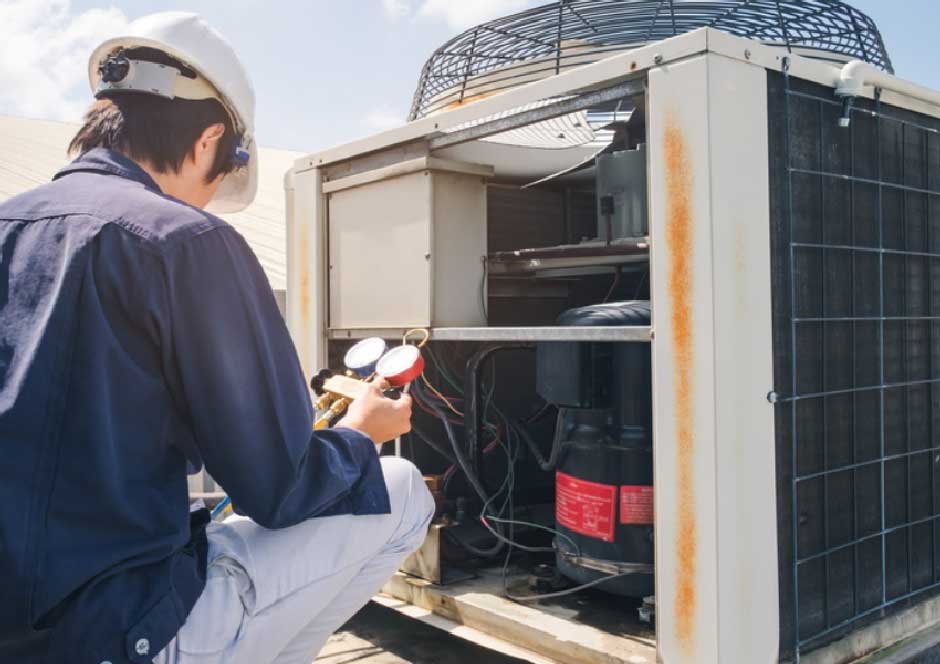Skip to the good bit
ToggleOptimizing the effectiveness of your home’s HVAC system is more crucial than ever in today’s energy-conscious world. An effective system lowers your carbon impact and energy costs. Integrating routine maintenance and leveraging technological advancements ensures your HVAC system operates at peak performance. Engaging in professional HVAC service is crucial to achieving this goal, providing homeowners with the expertise needed to maintain an efficient system.
Multiple strategies exist to boost your HVAC system’s efficiency, from simple DIY tasks to professional interventions. Making well-informed decisions that support larger sustainability objectives can result in a more comfortable indoor environment, longer equipment life, and significant savings.
Key Takeaways:
- Optimize your HVAC system to reduce energy costs and environmental impact.
- Learn the benefits of regular maintenance and modern technology integration.
- Explore expert insights and practical tips to enhance HVAC performance.
Table of Contents:
- Understanding Your HVAC System
- The Importance of Regular Maintenance
- Leverage Smart Thermostats for Efficiency
- Ensuring Proper Insulation
- Airflow Optimization Tips
- Why Professional Technicians Matter
- When to Consider Upgrading Your System
- Conclusion: Achieving Optimal HVAC Efficiency
Understanding Your HVAC System
Your HVAC system is an essential component of indoor comfort, in charge of heating, ventilation, and air conditioning. Knowing the fundamentals will enable you to see possible problems early and prevent them from getting worse. It’s important to know the major components, like the compressor, ductwork, and thermostat, and how they interconnect to efficiently regulate your home’s climate.
The Importance of Regular Maintenance
Regular maintenance is the cornerstone of an efficient HVAC system. This involves routine tasks such as changing filters every few months, which can significantly improve system efficiency by ensuring proper airflow and reducing energy consumption. Additionally, annual inspections by a qualified technician ensure that all components function correctly and help identify minor issues before they result in major repairs.
Leverage Smart Thermostats for Efficiency
At the forefront of HVAC efficiency technologies are smart thermostats. These devices learn your schedule and automatically adjust temperatures for optimal comfort and energy savings. According to the U.S. Department of Energy, smart thermostats can reduce energy bills by 10%, offering control and convenience through smartphone apps. They adjust the indoor environment more efficiently and provide insights into energy usage patterns, empowering homeowners to make more informed decisions.
Ensuring Proper Insulation
A well-insulated home keeps warm air inside during the winter and cool air in during the summer, reducing the strain on your HVAC system. Significant energy loss from poor insulation can make your system work harder than it has to. Investing in quality insulation materials for walls, attics, and ducts ensures that your system operates efficiently year-round.
Airflow Optimization Tips
Efficient airflow is crucial for an HVAC system’s performance. Duct or vent blockages can compromise the system’s ability to maintain a consistent temperature. Regularly inspect and clean air ducts, ensure vents are unobstructed by furniture or curtains, and use ceiling fans to circulate air effectively. These practices enhance the system’s capability to distribute air evenly and reduce unnecessary wear and tear.
Why Professional Technicians Matter
Hiring a professional technician ensures your HVAC system receives specialized care. Technicians have the necessary skills to conduct detailed inspections, perform complex repairs, and offer advice on enhancements to boost efficiency. Periodic check-ups by professionals can extend the life of your system and improve its efficiency significantly, providing peace of mind that your home remains comfortable throughout the year.
When to Consider Upgrading Your System
Sometimes, improving efficiency means upgrading older systems to more modern, energy-efficient models. If your HVAC system is over ten years old, you may save more in the long run by investing in newer technology. Consult with experts to evaluate the potential savings versus costs involved. Innovative systems are designed with advanced features that significantly outperform older models in efficiency and functionality.
Conclusion: Achieving Optimal HVAC Efficiency
Maximizing your HVAC system’s efficiency is both a practical and environmentally responsible goal. Homeowners can enjoy comfort while reducing energy consumption and costs by employing a combination of regular maintenance, smart technologies, and strategic upgrades. Exploring options such as engaging with professional services keeps your system running smoothly and ensures experts in the field back you. Striking a balance between modern technology and proper home management practices will position you on the path to achieving optimal HVAC efficiency.







